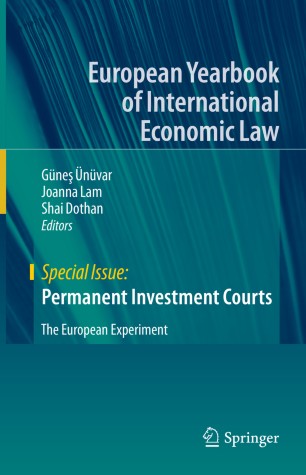

Most ebook files are in PDF format, so you can easily read them using various software such as Foxit Reader or directly on the Google Chrome browser.
Some ebook files are released by publishers in other formats such as .awz, .mobi, .epub, .fb2, etc. You may need to install specific software to read these formats on mobile/PC, such as Calibre.
Please read the tutorial at this link: https://ebookbell.com/faq
We offer FREE conversion to the popular formats you request; however, this may take some time. Therefore, right after payment, please email us, and we will try to provide the service as quickly as possible.
For some exceptional file formats or broken links (if any), please refrain from opening any disputes. Instead, email us first, and we will try to assist within a maximum of 6 hours.
EbookBell Team

5.0
78 reviewsThis special issue focuses on the opportunities and challenges connected with investment courts. The creation of permanent investment courts was first proposed several decades ago, but it has only recently become likely that these proposals will be implemented. In particular, the European Commission has pushed for a court-like mechanism to resolve investment disputes in various recent trade and investment negotiations. Such a framework was included in some free trade agreements (FTAs) and investment protection agreements (IPAs) the European Union (EU) signed or negotiated with Vietnam, Singapore, Mexico and Canada. While it was shelved long before the publication of this Special Issue, the European Commission had also formally proposed a court system during the negotiations for the Transatlantic Trade and Investment Partnership (TTIP) agreement with the United States. The issue of a Multilateral Investment Court (MIC) has also been prevalent at the Working Group III proceedings of the UNCITRAL on investor-State dispute settlement reform, attracting scholarly and public attention.Will these developments lead to the creation of permanent investment courts? How will such courts change the future of international investment law? Will they bring about a real institutional change in adjudicatory mechanisms? Will they introduce a 'hybrid' system, which borrows important characteristics from both arbitration and institutional methods of international adjudication? How will the enforcement mechanisms work, and under which rules of ethics will its adjudicators function and exercise their duties? This special issue brings together leading scholars sharing a common interest in investment courts to address these questions.